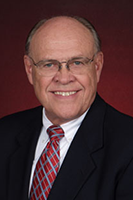

Abraham approached him and said, “Will you sweep away both the righteous and the wicked? Suppose you find fifty righteous people living there in the city– will you still sweep it away and not spare it for their sakes? Surely you wouldn’t do such a thing, destroying the righteous along with the wicked. Why, you would be treating the righteous and the wicked exactly the same! Surely you wouldn’t do that! Should not the Judge of all the earth do what is right?” And the LORD replied, “If I find fifty righteous people in Sodom, I will spare the entire city for their sake.” Then Abraham spoke again. “Since I have begun, let me speak further to my Lord, even though I am but dust and ashes” (Genesis 18:23-27 NLT).
One of the many remarkable things in the Bible is the significance of a single individual. For us in individualist America that is not such a big thing. But in the ancient world where individuals mattered not at all, it is a very big thing. God says to them and to us, you can make a difference.
How? There are at least three different ways that the Bible identifies.
The first is in prayer. Now if you understand how prayer works, please let me know. But I like what Archbishop Temple is supposed to have said, “I do not understand prayer. I only know that when I pray for my friends happy coincidences happen to them that do not happen when I don’t pray for them.” Yes. We do not change God when we pray, but we can change the course of history. When Yahweh’s two companions went on, Yahweh stayed behind because he wanted to talk to Abraham and invite him to pray for the righteous people who lived in Sodom.
If there were enough God would spare that entire wicked city for them. But how many is enough? By staying behind he was inviting Abraham to wrestle with him over that question. It was also a teaching time for Abraham. How big is God’s mercy? When Abraham stopped at ten, I wonder if Yahweh was a little disappointed. If he had gone on down to five, maybe Yahweh would have counted the four of Lot’s family and rounded it up to five, and saved the whole place. But the point is this: does the fate of a family, or a church, or a city, or a nation depend on you – on your conversations with God? It very well may. Even if you think you are dust and ashes!
As we bear the burdens of others, we stand in the gap for them.
And I sought for a man among them who should build up the wall and stand in the breach before me for the land, that I should not destroy it, but I found none (Ezekiel 22:30 ESV).
The second way is the one mentioned in Ezekiel above. The prophet envisions the people of Israel as a walled city. It is under attack by the enemy. In Ezekiel’s day there were basically two means of breaking down a city wall, a battering ram, or undermining (tunneling underneath and setting a fire in the tunnel so that the wall above would collapse). If the wall collapsed for either reason, then the only thing to do was to rush troops into the gap and hope to hold off the enemy until temporary repairs could be made. The believer who lives a life of integrity and love is standing in the gap when a culture begins to fall apart. As with Sodom, if God can find anybody like that, the whole “city” can escape destruction.
He saw that there was no man, and wondered that there was no one to intercede; then his own arm brought him salvation, and his righteousness upheld him (Isaiah 59:16 ESV).
The third way is described in the Isaiah passage. Here we have substitution, where we are willing to take the punishment that is due to another. We stand in the gap for them, laying down our lives for their sake. As Paul says, that is incredibly rare. Maybe we would do it for a family member or a bosom friend, but who would do it for someone who had offended and insulted them? Yet that is exactly what Jesus did, asking the Father to be merciful to us because we really did not know what we were doing. Here is the most truly Christlike life of all, offering ourselves in the place of others.
(Editor's note: for this and other blogs written by Dr. Oswalt you can visit his blog site HERE)

